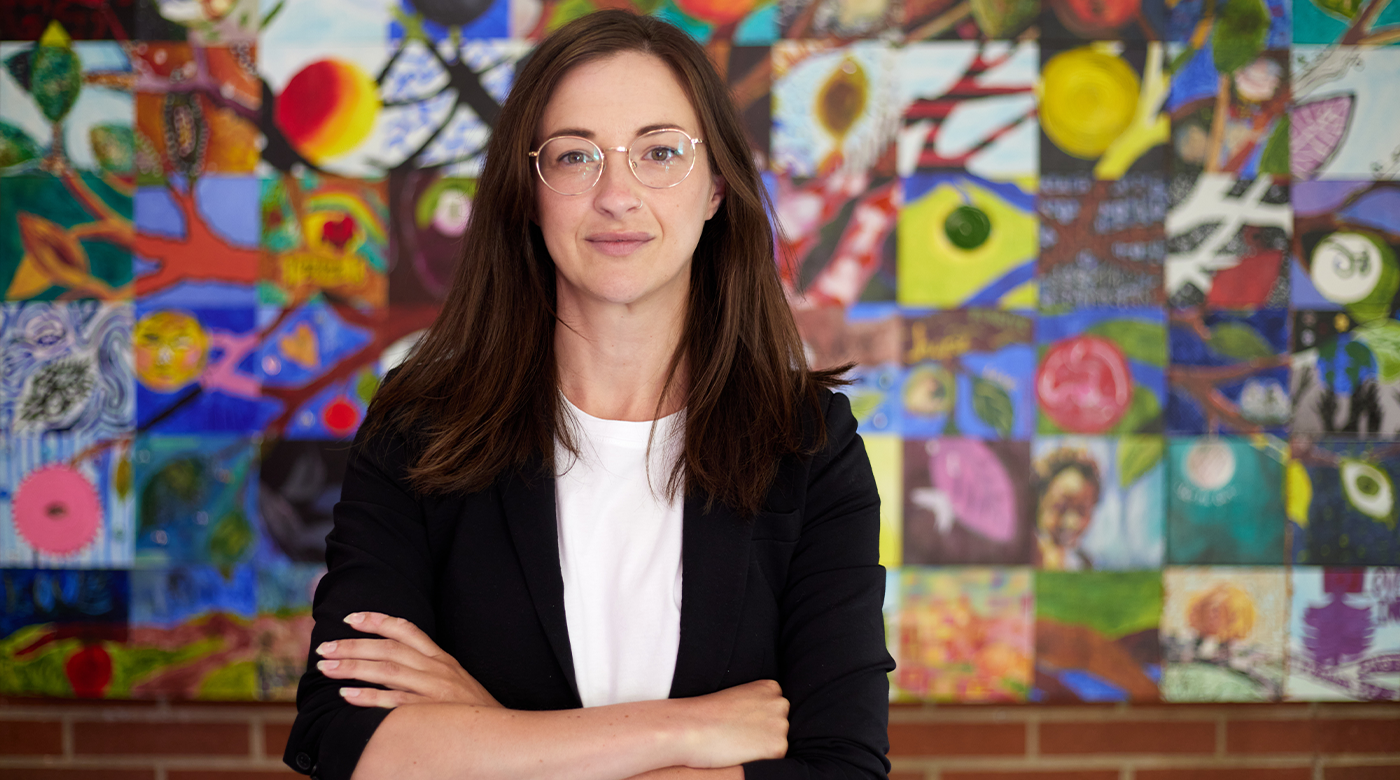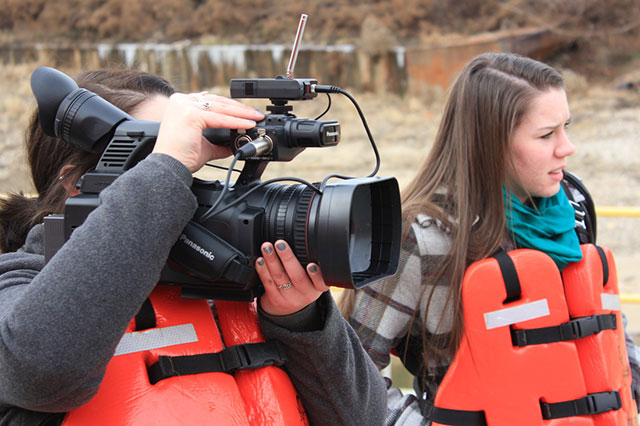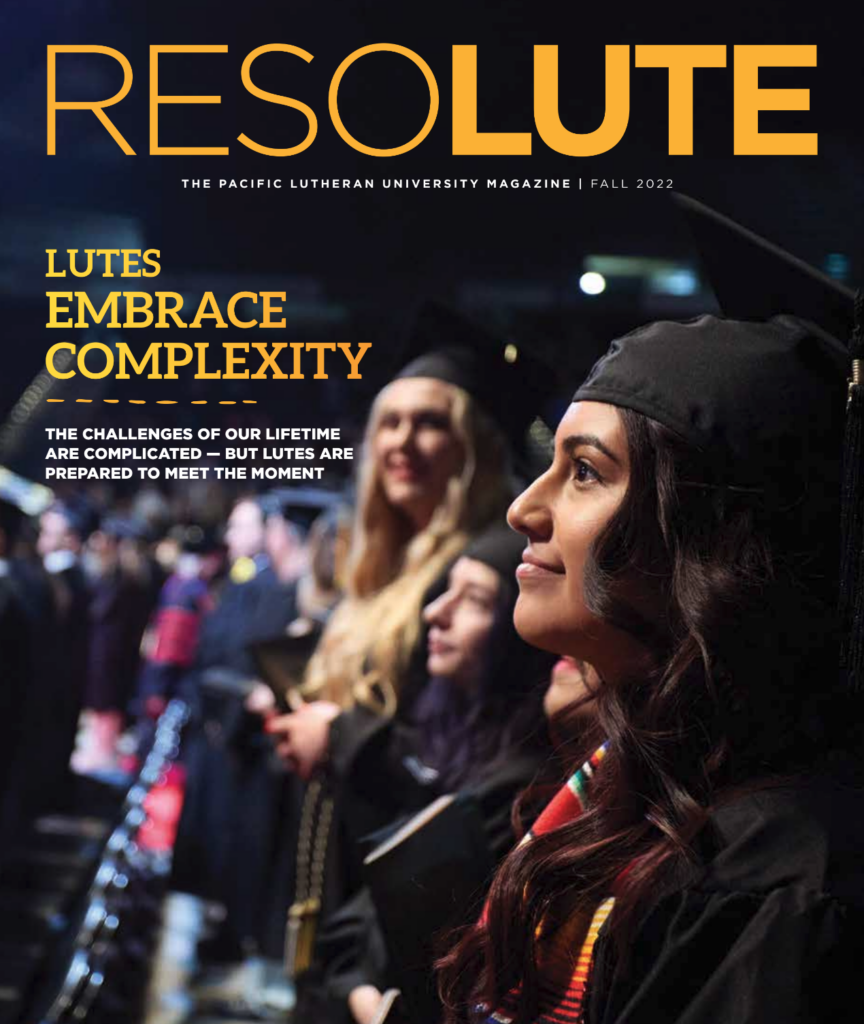WATCH THIS: Professor Marnie Ritchie discusses surveillance, rhetoric and media

Image: Assistant Professor of Communication Marnie Ritchie (PLU Photo/Sy Bean)
By Zach Powers '10
ResoLute Editor
Do you ever worry about history-tracking web browsers, “smart” kitchen appliances, and the even smarter phones we sleep next to? PLU Assistant Professor of Communication Marnie Ritchie thinks about these things. She thinks about them A LOT.
Ritchie is an award-winning researcher and writer in the field of surveillance rhetoric and national security. She’s a faculty member in PLU’s Department of Communication, Media & Design Arts and teaches in the Innovation Studies and Gender, Sexuality, & Race Studies programs. We visited Ritchie at her Ingram Hall office to discuss surveillance, media consumption and how to ask tough questions about who’s watching us — and why.
How would you summarize your academic field: rhetoric of surveillance and national security?
It starts with what one thinks rhetoric is. To me, rhetoric is any discourse that justifies actions, beliefs or values. So when I say rhetoric of surveillance and national security, I’m really trying to understand what public discourse justifies the use of or implementation of surveillance for national security reasons.
When did you become interested in this subject?
It goes back to my undergrad years. I was on the debate team and we would travel to hotels a lot and I became very curious about what kind of labor was happening within those hotels, especially hotel chains where the labor is largely invisible. I started asking questions and doing research. I learned about how national security was becoming part of hotel workers’ jobs. This was post 9/11, during the days of the “See Something, Say Something” campaign, so the tourism sector had invested in a lot of technology to train people, like hotel workers, to report suspicious activity to police and law enforcement.
Interesting. I feel like that rhetoric is still common in airports.
Yes, absolutely. You’ll encounter it a lot when you travel. This rhetoric is trying to make us lower the threshold for reporting what we see or what we hear in our everyday environment to law enforcement.
I imagine the ethics get complicated pretty quickly. I certainly don’t mind that there are security officers keeping an eye on the crowd when I go to a big concert.
Exactly. Surveillance should always be considered in context. And that’s why rhetoric is also important to consider what justifications there are for any given surveillance, how the information may be used, and by who. I think that there are legitimate forms of surveillance. David Lyon, who’s one of the scholars who established the field of surveillance studies, defines it as any systematic and routine attention to personal details. An example that he uses is a lifeguard. A lifeguard is there for your safety. They watch over everyone in the pool. That’s a very mundane, innocuous form of surveillance. You might think about things like registries of people who have a history of something like domestic violence. That’s a form of surveillance that is really important to protect people. There’s always questions around the uses of surveillance related to safety.
How do you encourage and equip your students to ask — or answer — tough questions about surveillance or other human rights issues?
I think a big part of it is encouraging them to use an interdisciplinary approach to connect what they’re learning in class with their own experiences, and to what they can learn from the lived experiences of people around them. For example, in this post-Roe surveillance area, we can’t think of the anti-abortion movement without thinking of anti-trans movements, white nationalist movements, etc. So in my classes, I think it’s important to connect those kinds of dots and consider how violence is compounded across different identities. It’s all about thinking about intersections.
That sounds like a great discernment approach for news and social media engagement as well.
I think so. One thing that students — and all of us — can ask ourselves is what kind of information am I consuming? I find that when students are asked to reflect on what kind of information they’re consuming, they can then move on to more complicated questions, like what information may be missing that might be important. In my Introduction to Media Studies class, I ask students to work in teams to audit an American news outlet. They have to carefully read articles to determine what the agenda setting function of news actually is. What is news covering that sets the agenda for what matters? Then we can ask deeper questions about power and what’s not being covered.




